Africa
DRC: Rwanda-backed rebels could seize more provinces, UN warns
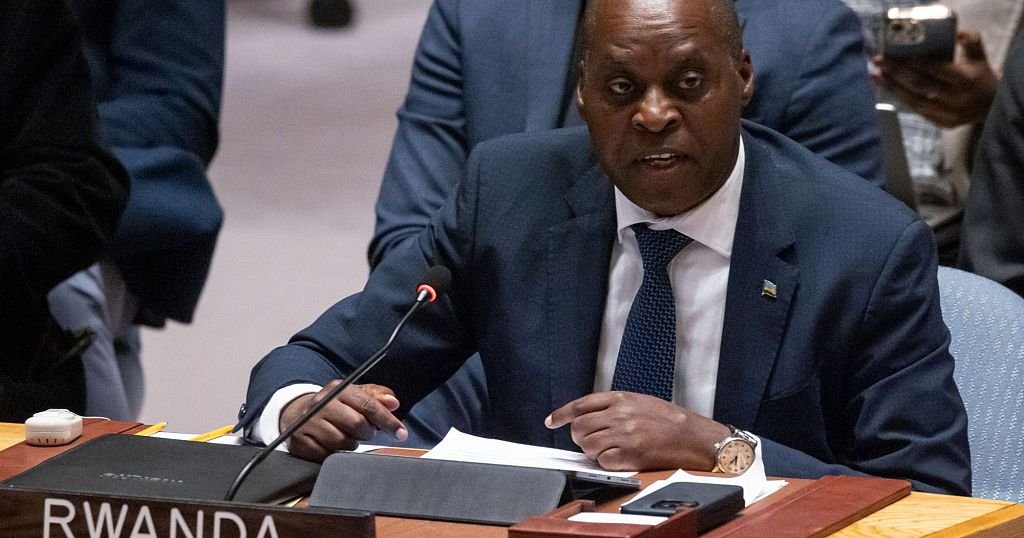
Rwandan-backed rebels now control large parts of eastern Congo and threaten to expand their offensive west into two neighboring provinces, the top U.N. official in the conflict-torn country said Thursday.
In a briefing to the U.N. Security Council on what she called “the alarming situation” in Congo, Bintou Keita pointed to the M23 rebels’ installation of an administration in South Kivu, and “a mining delegate” in North Kivu – another link between decades-old conflicts in eastern Congo and the illegal exploitation of its mineral riches.
The U.N. special representative for Congo also cited the dire situation of tens of thousands of Congolese fleeing the M23 offensive, and massive human rights violations against civilians from more than 100 summary executions to rapes and forced recruitment of children.
Despite regional and international efforts, including a recent agreement between the presidents of Congo and Rwanda in Qatar, Keita said the immediate and unconditional ceasefire they called for has not taken place.
She called for swift appointment of an African Union mediator to spearhead ceasefire efforts. Keita told the council that M23 controls large parts of North Kivu and South Kivu “and threatens to expand into Tshopo and Maniema provinces,” which are larger and across the Kivus’ western borders.
M23 and its allies have vowed to march as far as Congo’s capital, Kinshasa, about 1,600 kilometers (1,000 miles) to the east, and moving into Tshopo and Maniema would be a first major step.
Keita, who heads the U.N. peacekeeping mission in Congo known as MONUSCO, told reporters that an analysis by professionals on the ground determined that the two provinces could be next.
M23 is one of about 100 armed groups that have been vying for a foothold in mineral-rich eastern Congo near the border with Rwanda.
The conflict has created one of the world’s worst humanitarian crises and has displaced more than 7 million people.
At the root of the current crisis is the 1994 Rwanda genocide which saw bands of ethnic Hutu extremists kill minority ethnic Tutsis they blamed for the downing of a plane that killed the country’s Hutu president.
Rwanda’s current president, Paul Kagame, a Tutsi and former opposition military commander, is widely credited with stopping the genocide which killed more than 800,000 ethnic Tutsis and moderate Hutus who tried to protect them.
Thousands of Hutus fled Rwanda to neighboring eastern Congo. The M23 rebels are largely Congolese ethnic Tutsis, whose fighters seized Goma, eastern Congo’s largest city on the border with Rwanda, in November 2012 but pulled back under international pressure.
Last July, U.N. experts reported that between 3,000 and 4,000 Rwanda government forces were operating alongside M23 in eastern Congo.
And in January, M23 launched a major offensive against Congolese government forces that led to its takeover of most of the Kivus.
At Thursday’s council meeting, Congo’s Ambassador Zénon Mukongo Ngay blamed Rwanda for not adhering to a ceasefire and said his government “remains fully committed and reiterates its trust in any and all peace processes supported by the African Union to bring about a political solution to the conflict.”
He said Rwanda and M23 continue to respond to calls for the withdrawal of all “uninvited” foreign forces from Congo “with violence, with terror.”
And he thanked the countries that have imposed sanctions against Rwanda including the United States, United Kingdom, Germany, Canada and the European Union.
Rwanda’s Foreign Minister Olivier Nduhungirehe wouldn’t confirm the presence of Rwandan troops in Congo.
But he said the country’s “defensive measures” will remain in place “until there is a credible framework for long-term security guarantees” along the border with Congo.
Africa
Ivory Coast opposition call for election reform ahead of vote
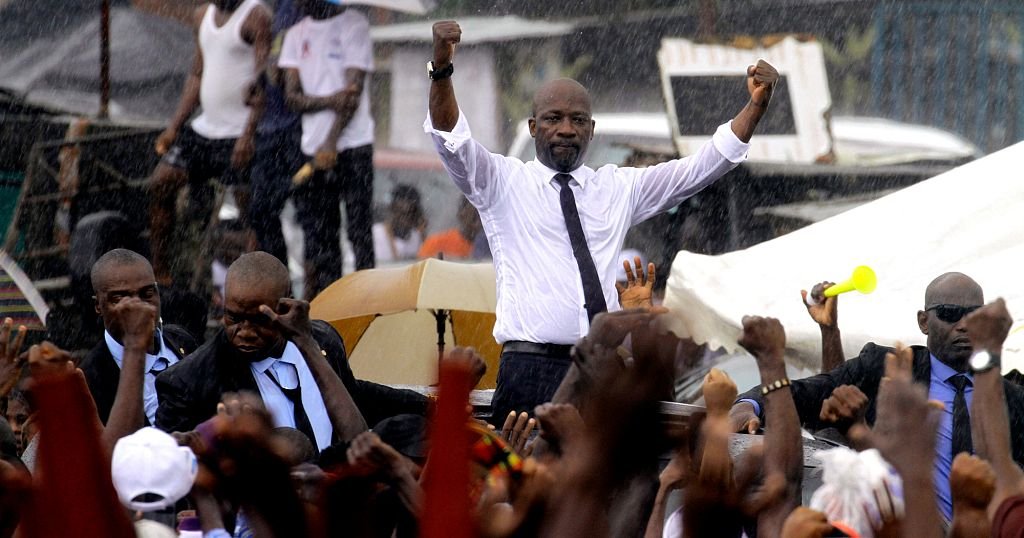
The Ivory Coast’s political opposition, an alliance of parties known as the Coalition for a Peaceful Alternation, called on Saturday for political dialogue with the ruling party, Rally of the Republicans (RDR), five months ahead of the presidential election.
Opposition leaders denounced President Alassane Ouattara’s potential candidacy, as well as the exclusion of several political figures from the electoral list, including banker Tidjane Thiam, former chief executive officer (CEO) of Swiss bank Credit Suisse. To allow the candidacy of all political leaders, the country’s former First Lady, Simone Gbagbo asked President Alassane Ouattara “to take his pen to write an amnesty law that will erase everything”.
In Paris, Tidjane Thiam, president of the coalition and the PDCI, the main opposition party, projected a video onto big screens. In the video, he said that “justice must not be instrumentalized” and called for a revision of the electoral lists before the election.
The coalition strongly criticizes the Independent Electoral Commission, considering it biased. The presidential election in Côte d’Ivoire is scheduled for October 25, 2025. The Coalition for a Peaceful Alternation (known as CAP) in Ivory Coast was formed on March 10, 2025, to confront the presidential majority bloc. It brings together a number of opposition figures, including former political figures such as Pascal Affi N’Guessan, Charles Blé Goudé, and former First Lady Simone Gbagbo.
Alassane Ouattara became president of Côte d’Ivoire in May 2011 following the 2010 presidential election. That election was marked by a violent post-election crisis that pitted Ouattara’s supporters against those of outgoing President Laurent Gbagbo.
Since taking power, Ouattara has served three presidential terms, and his potential candidacy for a fourth term has drawn fierce criticism from the opposition. However, his supporters argue that the new constitution, passed in 2016, resets the clock.
Africa
DR Congo Justice Minister under fire over $19M transfer
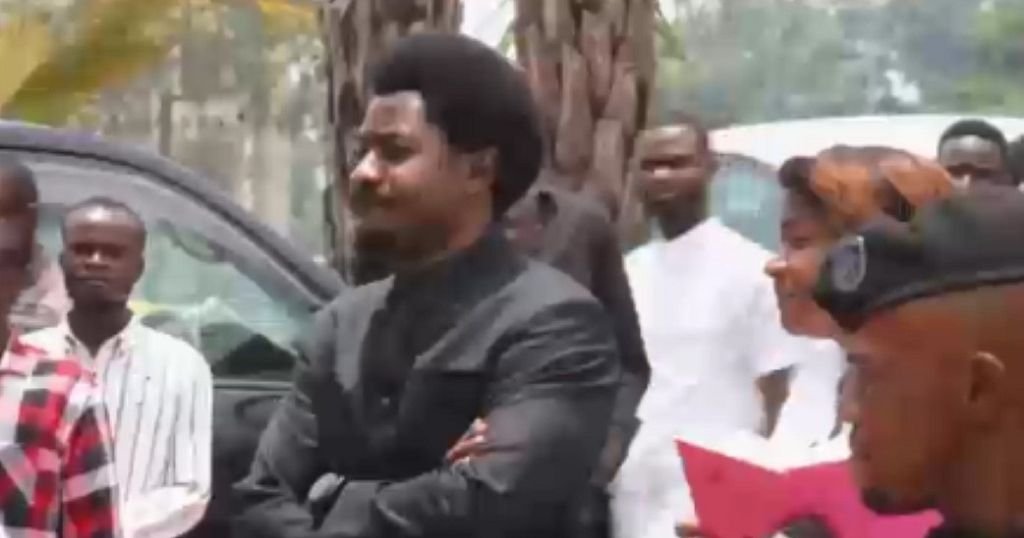
In the Democratic Republic of Congo, pressure is mounting on Justice Minister Constant Mutamba after explosive allegations over a multi-million dollar no-bid contract and suspicious fund transfers.
On Tuesday, lawmakers grilled the Attorney General for six hours and Mutamba for five. The focus: a $29 million deal awarded without competition, and a $19 million payment to Zion Construction—wired just one day after the company opened its bank account.
The funds didn’t come from the state treasury, but from FRIVAO, the agency managing $325 million in war reparations from Uganda. That agency falls under Mutamba’s direct authority. Defending himself, the minister admitted to “errors” and asked for forgiveness—but claimed he’s the target of political revenge.
He also blamed tensions with Prime Minister Judith Suminwa for a toxic work climate. Lawmakers say the accusations are serious, and the judiciary must be allowed to act. Mutamba’s future in government now hangs in the balance.
Africa
Global Heat Report: Climate change fuels silent killer

Four billion people, about half the world’s population, experienced at least one extra month of extreme heat due to human-caused climate change from May 2024 to May 2025, scientists say. The extreme heat caused illness, death, crop losses, and strained energy and healthcare systems, according to the analysis from World Weather Attribution, Climate Central and the Red Cross. “Although floods and cyclones often dominate headlines, heat is arguably the deadliest extreme event,” the report said.
Many heat-related deaths are unreported or are mislabeled by comorbid conditions like heart disease or kidney failure. Heat waves are silent killers, said Friederike Otto, associate professor of climate science at Imperial College London, one of the report’s authors. “People don’t fall dead on the street in a heat wave … people either die in hospitals or in poorly insulated homes and therefore are just not seen.” Low income communities and vulnerable populations, such as older adults and people with medical conditions, suffer the most from extreme heat.
The scientists used peer-reviewed methods to study how much climate change boosted temperatures in a heat wave and calculated how much more likely its occurrence was due to climate change. In almost all countries in the world, the number of extreme heat days has at least doubled. The report says strategies to prepare for heat waves include monitoring and reporting systems for extreme temperatures, providing emergency health services, cooling shelters, updated building codes, enforcing heat safety rules at work, and designing cities to be more heat-resilient.
While these strategies help people adapt to the increasingly frequent and severe heat waves, “only comprehensive mitigation, through phasing out of fossil fuels, will limit the severity of future heat-related harms,” the study said.
-

 Africa4 days ago
Africa4 days agoSurvivor of Liverpool car ramming talks of shock and panic
-

 Sports3 days ago
Sports3 days agoThe Knicks are bringing hope and title dreams back to New York after years in the doldrums
-

 Lifestyle4 days ago
Lifestyle4 days agoFaizan Zaki hopes to go from spelling bee runner-up to champ
-

 Lifestyle3 days ago
Lifestyle3 days agoChildren and careers: Talking to kids about what they want to be when they grow up
-

 Lifestyle4 days ago
Lifestyle4 days agoHow to decorate a patio, balcony or other small outdoor space
-
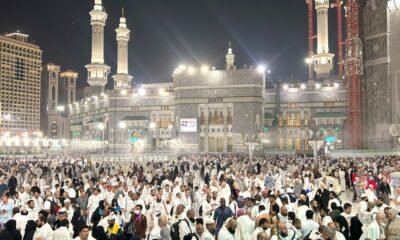
 Middle East5 days ago
Middle East5 days agoHajj pilgrimage in Saudi Arabia to begin on June 4 | Religion News
-
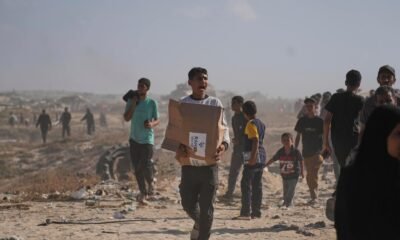
 Middle East4 days ago
Middle East4 days agoGaza’s aid system isn’t broken. It’s working exactly as designed | Humanitarian Crises
-

 Europe5 days ago
Europe5 days agoMacron’s marital shove disappears from French airwaves




